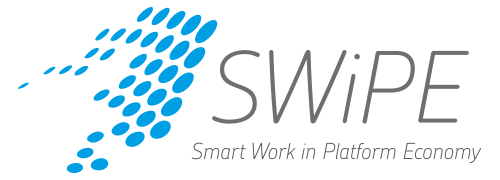Recent research shows that higher education professionals are taking advantage of the opportunities offered by digitalisation and technological development. Digitalisation and technological development are not believed to reduce the workload of the experts. However, working on platforms and providing their own expertise on platforms remains limited. The development of competence is often done on one’s own initiative and at own cost.
The results come out from the survey materials conducted by the University of Turku, Etla and the Finnish Institute of the Occupational Health. The target group of the survey was the members of Akava, a trade union confederation of affiliates for highly educated people, and all together 2 326 members answered the survey. The aim of the study was to find out how digitalisation and platform economy, and the challenges and opportunities that they bring, are reflected in the work of experts working for highly skilled professionals. The study was conducted in November 2017 – January 2018.
Platform economy means a common platform enabled by technology and economic activity happening on it. The members of Akava are very much utilizing digital tools, since 91% of respondents say they use them daily. More than half of respondents report that their expert work is at least built on digital tools. However, using platform for economic opportunities, the people of Akava have still used little to sell their own expertise, although almost a quarter have somehow looked into the earning opportunities offered by the platforms. The platform work is of the highest interest to most highly educated Akava members with doctor’s degree.
Nearly all (91%) of the members who responded to the survey reported that they had developed their skills in at least one way. Normally, the skills are improved independently, done on one’s own initiative and at own cost. Obstacles of the development of skills are also linked to this. Well over half (67%) of respondents said they could not promote their competence because of lack of their own resources, such as time, knowledge, planning, or lack of money.
– The changing working life also sets standards for continuous development of skills. The importance of long-term education is also evident in this study. The development of the knowledge and skills should not just be the responsibility of the employees themselves. This is not sustainable in the long term, says professor Anne Kovalainen, leader of the SWiPE research project.
– Digital tools are quite familiar to the Akava members. The people of Akava want to keep up to date and develop their skills. Thus, they also have the capacity to work on digital platforms in the future. More I would be worried about how many members of Akava have the opportunity to develop their skills. Many people experience the development of skills challenging due to lack of time and money, commented Anu Tuovinen, expert from Akava.
84% of the respondents estimate that technological developments do not undermine their position in the labour market. Comparably, 75% of respondents believe that along the new skill requirements their position remain strong and new digital tools will improve their job opportunities (63% of respondents). Moreover, it is not believed that new tools will reduce the amount of work. On the basis of the study Asiantuntijatyö alustatalouden aikakaudella (Expert work on the era of the platform economy) carried out by the SWiPE research project, the Akava members also have a strong belief that their current work will remain, and that they do not have to educate themselves for a new occupation during the next five years.
More information:
Asiantuntijatyö alustatalouden aikakaudella (Expert work on the era of the platform economy) report in available here. The report is in Finnish.
Professor Anne Kovalainen, leader of SWiPE project, Tel. +358 50 502 7022, e-mail anne.kovalainen@utu.fi
Expert Anu Tuovinen, Akava ry, Tel. +358 50 308 6943, e-mail anu.tuovinen@akava.fi
